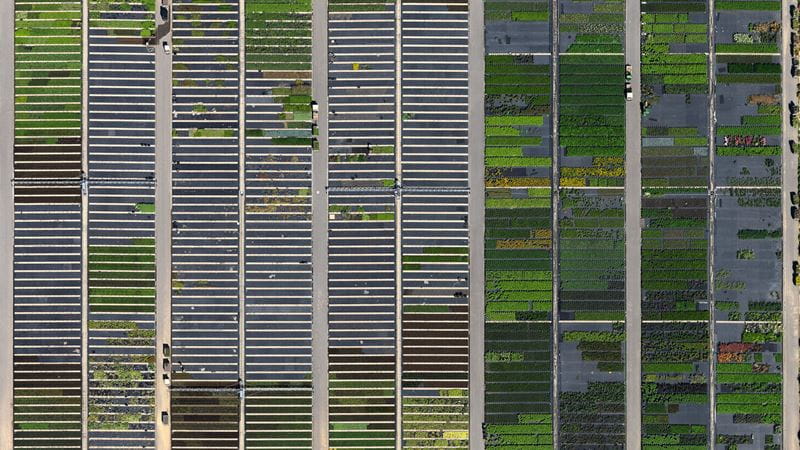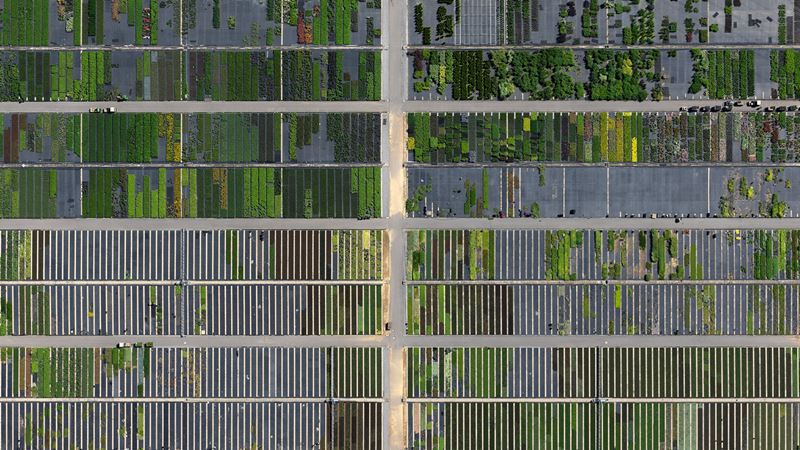Select your investor profile:
This content is only for the selected type of investor.
Individual investors?
The world’s other pandemic: confronting the food crisis
For many of us Covid 19 has caused a step-change in our relationship with food. The path to address this crisis will involve innovative solutions and provide significant investment opportunities.
From one pandemic to another. The world may have begun to emerge from the ravages of Covid-19, but it has yet to confront what the World Health Organization considers another public health crisis – malnutrition.
Although it has been six years since world governments pledged to end hunger by 2030 under the UN’s Sustainable Development Goals, progress has been slow. So slow, in fact, that the target now looks out of reach. But malnutrition isn't only hunger - it's just as much about obesity and too many empty calories.
The warning came in a recent Pictet ‘Megatrends Series’ webcast presentation given by Dr Sandro Demaio and Dr Stefan Catsicas, nutrition experts who sit on the Pictet-Nutrition Advisory Board.
In the webcast, the two explained if present trends persist, more than 17 per cent of children under five will suffer from stunted growth by the end of the decade while over 7 percent will be overweight.
This ‘double burden of malnutrition’ – which reflects the flaws in the way food is produced, marketed and consumed – is not only a matter for health experts but is at root of many of the socio-economic and environmental problems that have faced the planet over the past few decades.
As Dr Demao said: "Malnutrition is not the problem of the rich, poor or the lazy. It’s a bigger and complex societal problem involving a dynamic global food system. There’s no silver bullet in fixing it. In order to get more affordable, convenient and healthier food to children as well as those in the lower income countries, we need to reform not just what we eat – or personal food environment – but also the supply chains and external surroundings such as retail and food markets. We need more efficient production and transport of food, waste reduction as well as enabling policy."
Malnutrition is not the problem of the rich, poor or the lazy. It’s a bigger and complex societal problem involving a dynamic global food system.
After the pandemic, more people are focused on health and public health has shown its value.
We need multi-stakeholder solutions...there's more room for the private sector to work with governments.
"We need multi-stakeholder solutions. Some governments have successfully rolled out of policies such as the sugar tax but there’s more room for the private sector to work with governments so that they can adapt and invest in solutions." Dr Catsicas explained.
Our Mega.online website has written extensively on the challenges facing the food industry. A selection of articles can be found below.
Missed the webcast? Click on the icon to access the replay...
Important legal information
This marketing material is issued by Pictet Asset Management (Europe) S.A.. It is neither directed to, nor intended for distribution or use by, any person or entity who is a citizen or resident of, or domiciled or located in, any locality, state, country or jurisdiction where such distribution, publication, availability or use would be contrary to law or regulation. The latest version of the fund‘s prospectus, Pre-Contractual Template (PCT) when applicable, Key Information Document (KID), annual and semi-annual reports must be read before investing. They are available free of charge in English on www.assetmanagement.pictet or in paper copy at Pictet Asset Management (Europe) S.A., 6B, rue du Fort Niedergruenewald, L-2226 Luxembourg, or at the office of the fund local agent, distributor or centralizing agent if any.
The KID is also available in the local language of each country where the compartment is registered. The prospectus, the PCT when applicable, and the annual and semi-annual reports may also be available in other languages, please refer to the website for other available languages. Only the latest version of these documents may be relied upon as the basis for investment decisions.
The summary of investor rights (in English and in the different languages of our website) is available here and at www.assetmanagement.pictet under the heading "Resources", at the bottom of the page.
The list of countries where the fund is registered can be obtained at all times from Pictet Asset Management (Europe) S.A., which may decide to terminate the arrangements made for the marketing of the fund or compartments of the fund in any given country.
The information and data presented in this document are not to be considered as an offer or solicitation to buy, sell or subscribe to any securities or financial instruments or services.
Information, opinions and estimates contained in this document reflect a judgment at the original date of publication and are subject to change without notice. The management company has not taken any steps to ensure that the securities referred to in this document are suitable for any particular investor and this document is not to be relied upon in substitution for the exercise of independent judgment. Tax treatment depends on the individual circumstances of each investor and may be subject to change in the future. Before making any investment decision, investors are recommended to ascertain if this investment is suitable for them in light of their financial knowledge and experience, investment goals and financial situation, or to obtain specific advice from an industry professional.
The value and income of any of the securities or financial instruments mentioned in this document may fall as well as rise and, as a consequence, investors may receive back less than originally invested.
The investment guidelines are internal guidelines which are subject to change at any time and without any notice within the limits of the fund's prospectus. The mentioned financial instruments are provided for illustrative purposes only and shall not be considered as a direct offering, investment recommendation or investment advice. Reference to a specific security is not a recommendation to buy or sell that security. Effective allocations are subject to change and may have changed since the date of the marketing material.
Past performance is not a guarantee or a reliable indicator of future performance. Performance data does not include the commissions and fees charged at the time of subscribing for or redeeming shares.
Any index data referenced herein remains the property of the Data Vendor. Data Vendor Disclaimers are available on assetmanagement.pictet in the “Resources” section of the footer. This document is a marketing communication issued by Pictet Asset Management and is not in scope for any MiFID II/MiFIR requirements specifically related to investment research. This material does not contain sufficient information to support an investment decision and it should not be relied upon by you in evaluating the merits of investing in any products or services offered or distributed by Pictet Asset Management.
Pictet AM has not acquired any rights or license to reproduce the trademarks, logos or images set out in this document except that it holds the rights to use any entity of the Pictet group trademarks. For illustrative purposes only.






